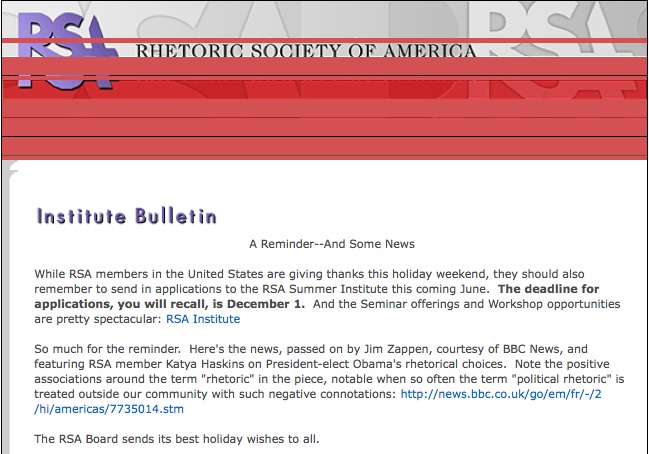I was shopping at a health food store last week, and I stopped at the dairy section to pick up some cream cheese. Lo and behold, there was a new (well, new to me anyway) alternative to cream cheese with 1/3 less saturated fat. Now, who can possibly resist such an appeal to logic? (Not to mention the emotional appeal of a slim waistline). It’s called Neufchatel (see “Nuefchatel” on Wikipedia) — and, as we all know beyond any rational doubt, food items with foreign names have to be good. I imagined what the consistency and flavor of the cheese must be, and although I wasn’t super impressed with my imagined cheese (I guess I don’t buy into the purchase-worthiness of foreign names after all), I decided to give it a try.
I opened it today, but I began looking over the packaging while my toaster did its toasting. I always wonder at how different cheeses are made, and yet the ingredients list rarely helps when “milk and cheese cultures” tops and often ends the list. It’s interesting how much is and is not told with an ingredients list. I quickly scanned the item’s nutrition facts, and right next to it, in a relatively prominent location, was this:
MADE WITH MILK FROM COWS NOT
TREATED WITH rGBH.
The FDA has said there is no
significant difference between milk
from cows treated with rGBH and
untreated cows. No test can
distinguish between milk from
treated and untreated cows.
Hmm, I thought. How interesting that valuable packaging real estate went into making a claim (that the milk came from cows not treated with a growth hormone) only to usurp all power from that claim (the milk from treated or untreated cows is not significantly different). But, then, I was in a health food store, and FDA findings and rulings are met with a critical eye from these shoppers. In this context, the statement in all-caps would get a nod of approval and the disclaimer would be ignored or scoffed at.
I began researching the topic on the Web to see how the labeling of rGBH (also known as rBST) (see Bovine Somatotropin on Wikipedia) is restricted, and I discovered the conversation regarding its approval and use is quite involved. It turns out that a movement toward banning statements about rBGH-free cows began in Pennsylvania in fall 2007 with Dennis Wolff, the state’s agriculture secretary, who claimed that “consumers were confused” about the quality of milk from these cows (“Fighting on a Battlefield the Size of a Milk Label,” The New York Times). If the law passed, consumers would have no way of knowing whether milk had come from cows treated with rBGH or not.
But after pressure from consumer groups and the governor of Pennsylvania – along with Wolff acknowledging he had no consumer reports to support his cause – the case was dropped and turned, instead, into a push toward restricting the language on labels, and this time similar cases began in New Jersey, Ohio, Indiana, Kansas, Utah, Missouri and Vermont as well. Farmers and resellers, meanwhile, argue that their first amendment rights are being hampered. It appears these battles are still ongoing.
The layers to this story continue to be interesting, however. I’m always interested in what factors are ignored or overlooked and whether the lapses can be seen as intentional or unintentional. Here are some instances that are interesting to me, but there are certainly more to be found.
American consumption levels
The FDA approved the growth hormone in 1993, and The American Council on Health and Science gave this reason for acknowledging the need for what they are calling a “technology”:
As the world’s population grows, the National Research Council estimates that the supply of food required to adequately meet human nutritional needs over the next 40 years will be equal to the amount of food previously produced throughout the entire history of humankind. To meet this demand, animal scientists must develop new technologies to increase productive efficiency (that is, the yield of milk or meat per unit of feed), produce leaner animals and provide increased economic return on investment to producers. During the past decade, scientists have developed many new agricultural biotechnologies that meet these goals. Their adoption will have many positive effects on food production, processing and availability. (“The Efficacy, Safety and Benefits of Bovine Somatotropin and Porcine Somatotropin,” The American Council on Health)
What it doesn’t discuss is the overproduction of milk. Various web sites discuss this problem, but more reputable sites on dairy markets offer statistics spread over various dairy products. If anyone wants to crunch the numbers for us, feel free to post a comment with your analysis.
Human Health
Another issue that has arisen is the presence of IGF-1, a protein hormone, in milk from treated cows. Some groups claim the protein “is an important factor in the growth of cancers of the breast, prostate and colon” (“rBGH / rBST,” Center for Food Safety), but the FDA gave this response to a citizen petition to take the hormone off the market:
The FDA has previously maintained and continues to maintain that levels of IGF-I in milk whether or not from rbGH supplemented cows are not significant when evaluated against the levels of IGF-I endogenously produced and present in humans.” (Response to Robert Cohen, U.S. Food and Drug Administration. Note: This link will open a Microsoft document file.)
I guess time will answer this one for us.
Animal Health
Most of the debate surrounding this issue seem to deal solely with the quality of the milk, but it’s context, so to speak, seems to be disregarded to a large extent in the scientific studies we see. Some groups claim that the hormone causes various deformities and diseases in the animals that farmers must then treat with antibiotics and other drugs, which find their way into milk.
Nonetheless, the FDA’s update on the safety of milk doesn’t address the alleged problem but only discusses the safety of milk in terms of humans:
FDA’s Center for Veterinary Medicine (CVM) has reexamined the human food safety of recombinant bovine somatotropin (rbST) in response to recent inquiries about the safety of this product. FDA’s CVM approved Monsanto Company’s rbST product, PosilacÒ in November 1993 after a comprehensive review of the product’s safety and efficacy, including human food safety. CVM has issued a detailed report based on a careful audit of the human food safety sections of this approval. CVM’s finding upholds the Agency’s original conclusion that milk from cows treated with rbST is safe for human consumption. (“Update on Human Food safety of BST,” U.S. Food and Drug Administration)
So is milk from cows treated with rBGH (or rBST) safe and humane? I don’t know. I’m just interested in how it’s marketed and how the studies and subtopics are fed to the public.
As for Nuefchatel, it’s pretty good. I couldn’t tell a difference between it and regular cream cheese, but I’m also suffering from a cold today, and supposedly our sense of taste mostly derives from our sense of smell, which I’m missing for the moment. My scientific research has suffered another disabling factor too: a second variable called “pumpkin butter with port.” You gotta try it.



 Guantanamo Bay, Iraq and Afghanistan. Doesn’t the media know that the correct word is “prisoners,” regardless of what Bush, Cheney and Rumsfeld disseminated?
Guantanamo Bay, Iraq and Afghanistan. Doesn’t the media know that the correct word is “prisoners,” regardless of what Bush, Cheney and Rumsfeld disseminated? and I think that the federal government has to do obviously the same thing.
and I think that the federal government has to do obviously the same thing.
